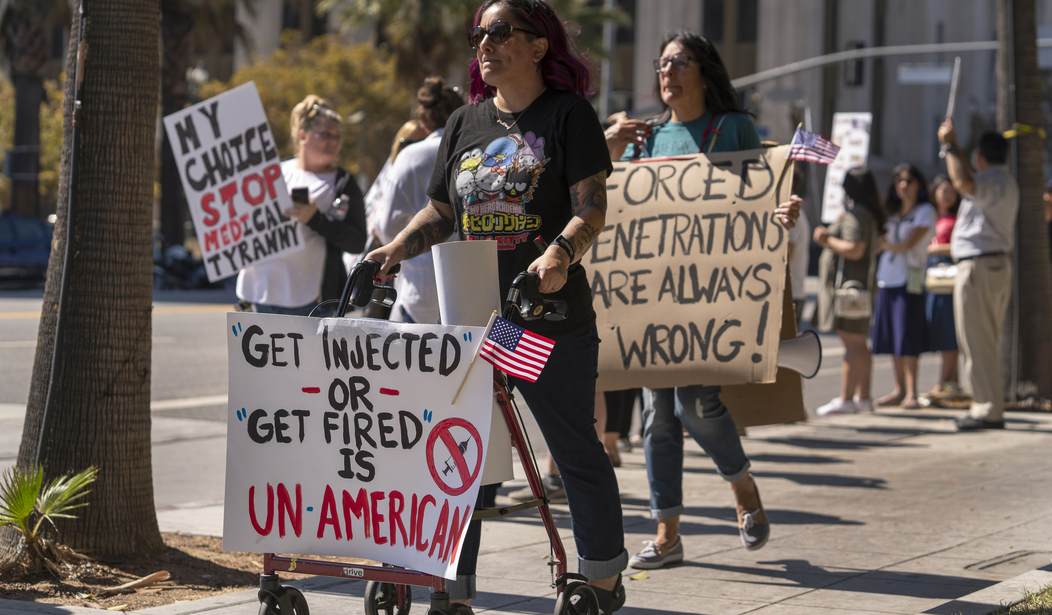Reportedly, OSHA sent the draft of the COVID-19 vaccine mandate to the Office of Management and Budget (OMB). Because the agency is issuing the mandate for employers with more than 100 employees as an emergency temporary standard (ETS), there will not be a comment period. Once OMB finishes the review, it will be published and go into effect.
Several law firms and employers have indicated they will head directly to court to challenge OSHA’s authority to issue the rule. While the legal system adjudicates the claims, many employers may stay in limbo if they are able. However, one employer not in limbo is the federal government. Federal employees must be fully vaccinated by November 22, which means the deadline to get the first dose of the mRNA vaccines is fast approaching.
Additionally, state and local governments traditionally set health policy, as they did during the early pandemic under President Trump. There is already tension between state and federal law where governors have prohibited vaccine mandates. Undoubtedly this will be a point of contention in legal proceedings between the states and the federal government when the ETS is issued.
Recommended: Dr. Fauci Is Right About One Thing: There Will be a 5th COVID Wave, and a 6th, and a 7th…
On an interesting note, on October 1, the Federal Employee’s Compensation Act (FECA) issued a bulletin regarding coverage for vaccine injuries. As of September 9, when President Biden announced the federal mandate, adverse reactions to COVID-19 vaccination are covered.
However, this executive order now makes COVID-19 vaccination a requirement of most Federal employment. As such, employees impacted by this mandate who receive required COVID-19 vaccinations on or after the date of the executive order may be afforded coverage under the FECA for any adverse reactions to the vaccine itself, and for any injuries sustained while obtaining the vaccination.
If a federal employee sustains an injury in a car accident on his way to get vaccinated or falls down the stairs on the way to an in-house clinic, that is covered as well. This bulletin is an interesting turn of events given previous OSHA guidance to private employers. FECA did not traditionally cover preventative measures and any resulting illness or injury.
Many private employers took President Biden’s announcement that an ETS was imminent as a pretext to announce an immediate vaccine mandate. Over a month later, OSHA has still not updated guidance for employers who must mandate the vaccine. As it stands today, employers are not required to record vaccine injuries with OSHA, even if they have a vaccine mandate.

Part of the reluctance of some employees in muscular jobs like manufacturing, law enforcement, emergency services, and airline pilots, is the frequency of heart-related side effects. A severe case of myocarditis could prevent people in these positions from returning to work at all. The Federal Aviation Administration requires commercial pilots to undergo an annual exam, including an electrocardiogram (EKG) after age 35. Many municipal agencies have similar requirements.
While OSHA does not govern worker’s compensation, after managing both for several employers, I have never seen a compensable injury that is not OSHA recordable. To receive compensation for an extended absence or permanent disability due to a vaccine injury, an employee of a private employer may have to file a lawsuit.
Related: The Morning Briefing: What if They Gave a Mandate and No Law Enforcement Came?
Unionized employees have a distinct advantage. According to a leading employment law firm, Armstrong and Teasdale, unionized employers may be obligated to provide advance notice to their bargaining units and bargain with the unions about the mandate. Without the OSHA ETS, unions would have bargained about having a vaccine mandate as a term or condition of employment at all. Now, unions should still have an opportunity to ensure their members are covered if they sustain a vaccine injury.
However, the law firm does note that employers need to plan for accommodations for religious and medical exemptions. Under the Americans with Disabilities Act, those with allergies and pre-existing conditions that put them at high risk for serious side effects should be accommodated. The federal agencies can establish their own policies, so it is reasonable to assume that private employers will have the same opportunity.
The guidance for federal employees is significantly biased in favor of the vaccine. Federal agencies may deny legitimate exemption requests if they decide “that no safety protocol other than vaccination is adequate.” It is also explicit that prior COVID-19 infection and a positive antibody test are not substitutes for a vaccine, which is absurd. Dozens of studies demonstrate that natural immunity is more durable and at least as effective as vaccinated immunity.
As employment law firm Ogletree Deakins noted, requiring employers to record vaccine injuries was a disincentive for employers to put their own mandates in place. Recordability had the potential to increase a company’s insurance costs. Now that OSHA will require any employer with 100 employees or more to implement a mandate, they need to change recordability guidance. The agency’s reason not to record them is now void. As government regulation regularly increases employer costs, and nearly all employers will be in the same position, no employer is disadvantaged.
Private sector employees deserve the same protection as federal employees in the face of mandatory vaccines. The mandates put at risk the ability to earn a living for some people. If they cave, they should be liable just as every taxpayer is now liable for a vaccine injury to a federal employee. If employers don’t want the liability, they should fight the mandate.










